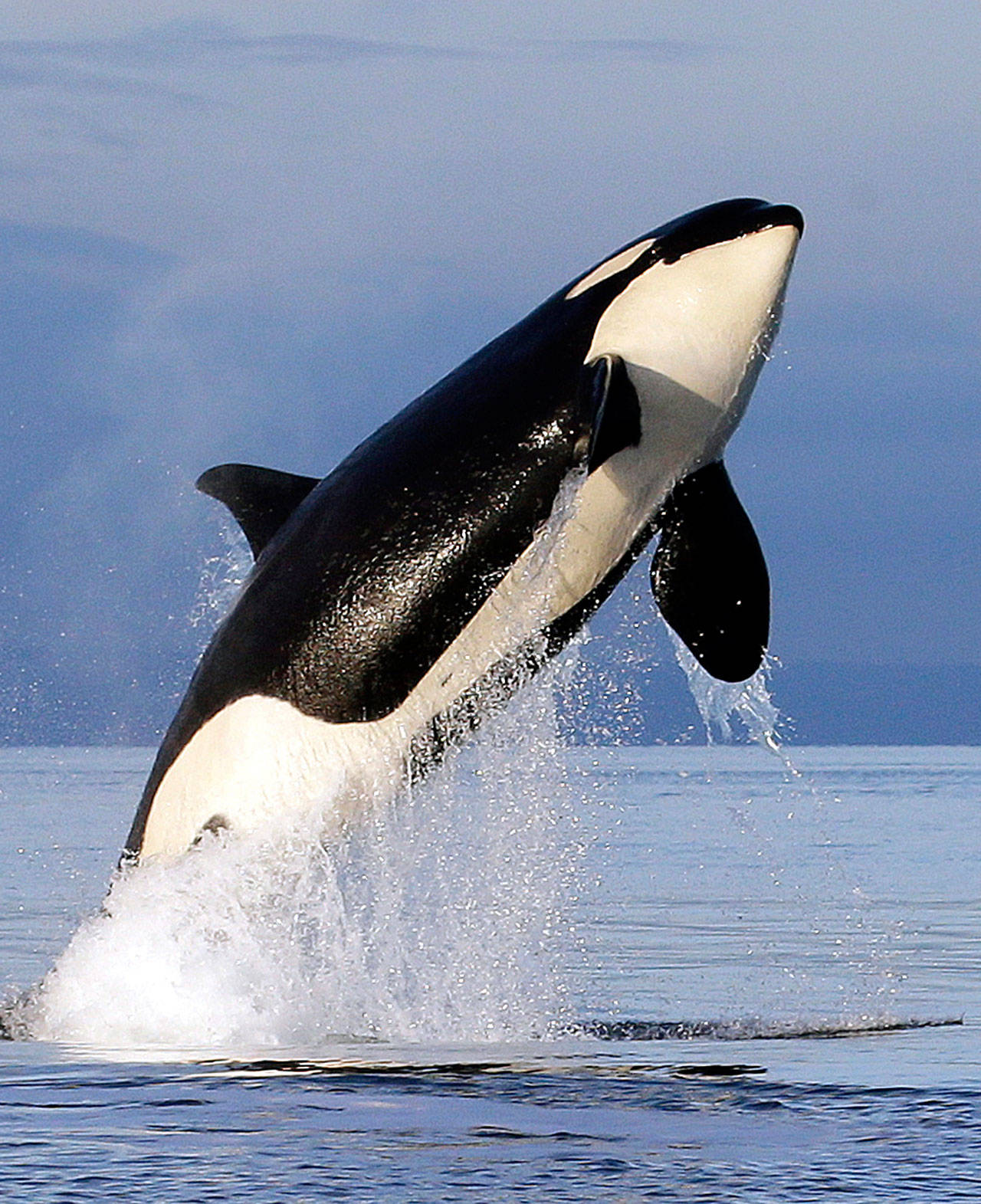The Associated Press
SEATTLE — When the mighty orca breaks to the surface and exhales, the whale sprays an array of bacteria and fungi in its breath, scientists said, some good, and some bad such as salmonella.
The findings in a new study raise concerns about the potential role of infectious diseases as another major stress factor for the struggling population of endangered Puget Sound orcas.
Those orcas’ breath samples revealed microbes capable of causing diseases. Some were resistant to multiple antibiotics frequently used by people and animals, suggesting human waste contaminating the marine environment, according to a study published online Friday in the journal Scientific Reports.
Scientists followed the whales as they swam in Washington state waters and waited for them to surface and exhale. The researchers on boats would swing a 25-foot-long pole with several petri dishes above an orca’s blowhole, capturing the droplets that sprayed out.
Using those unique breath samples captured over a four-year period, the study identifies an array of bacteria and fungi contained in the exhaled breath of the small, distinct population of southern resident killer whales of the northeast Pacific Ocean.
The number of Puget Sound orcas has fluctuated in recent decades as they have faced threats from lack of prey, pollution and noise disturbance from vessels. The orcas were listed as endangered in 2005, and now number 78.
Scientists also found healthy bacteria in the breath samples but also worrisome drug-resistant ones such as salmonella and Staphylococcus aureus.
The whales swim through urbanized waterways and encounter a number of environmental stressors caused by humans, including everything from what gets flushed down toilets to agricultural runoff.
“They’re recruiting the bacteria in their habitats,” said Stephen Raverty, the study’s lead author who is a veterinary pathologist with British Columbia Ministry of Agriculture, Animal Health Centre in Abbotsford.
Orcas with weak immune responses can be more susceptible to bacteria resulting in respiratory disease.
“These animals are subject to many stressors, which reduce the competence of their immune systems,” said marine mammal veterinarian Pete Schroeder, co-author of the paper.
It’s the first such study to provide a snapshot of the pathogen burden of this endangered population. It also will help scientists develop a baseline to compare changes to the whales’ respiratory conditions over time.
Scientists collected 26 breath samples from whales around San Juan Island and compared them to seawater samples collected from the millimeter-thick layer on the surface of Puget Sound.
When the whales break through the surface of the water, they take in the contaminants and other micro-organisms in that sea layer. Pathogens and antibiotic-resistant bacterial strains were found in both the breath samples and seawater.
Scientists don’t know enough to say how harmful the microbes are to the orcas.
“Because you find a potential pathogen, it doesn’t mean the animal is necessarily sick. It might be something normal,” said Linda Rhodes, supervisory research microbiologist with the Northwest Fisheries Science Center in Seattle and co-author.
Bacteria are there, and if for any reason the animals become immune-suppressed, it could provide an opening to make the orcas sick, Raverty said.
Scientists tracking deaths of whales found that respiratory disease was a factor in those animals. About 40 percent of those animals had some infection in the lung, and in some cases, it was strong enough to contribute to their deaths, he said.
The study said it is noteworthy that within 30 miles of the study area, the city of Victoria, does not have a secondary sewage treatment facility, and instead discharges waste with only primary treatment into the Salish Sea.
Scientists are working on creating personal health records for each endangered whale, which are intensely tracked and photographed. Individual Puget Sound orcas are identified by unique black-and-white markings or variations in their fin shapes, and each whale is given a number and a name.

